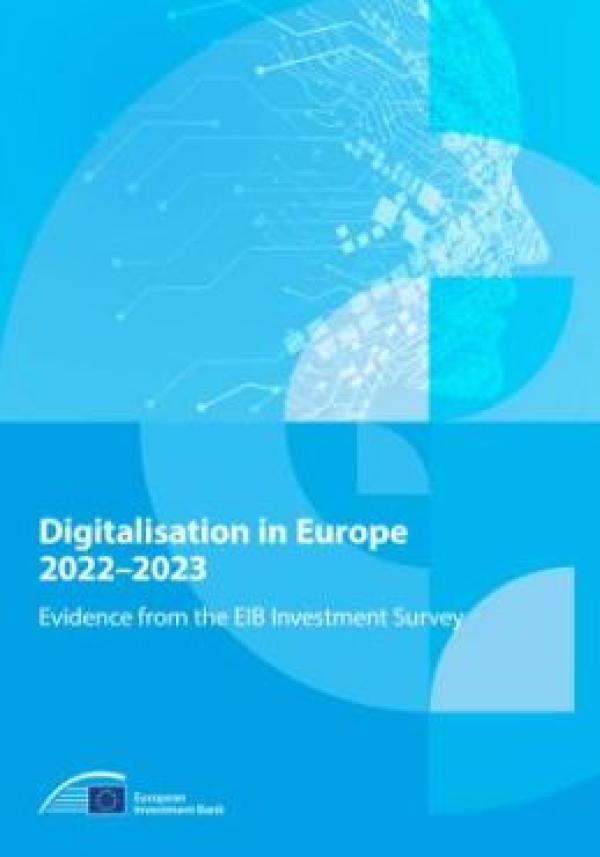
- Digital infrastructure, innovative environments and the availability of skilled workers all play a crucial role in driving digitalisation, but EU-wide disparities persist.
- The European Union has narrowed the gap with the United States in adopting advanced digital technologies (EU 69% vs. US 71%).
The COVID-19 crisis prompted a surge in the digitalisation efforts of EU firms. According to a new report, Digitalisation in Europe 2022-2023: Evidence from the EIB Investment Survey, more than half (53%) of EU firms took steps in 2022 to enhance their digital presence, such as offering services online. The European Union has also narrowed the gap with the United States in adopting advanced digital technologies. In 2022, 69% of EU firms implemented advanced digital technologies, such as advanced robotics, big data analytics and artificial intelligence, compared with 71% of US firms. The gap has narrowed steadily over the last four years.
While EU firms have made substantial strides, US firms overall made more progress in digitalisation as a response to the pandemic, primarily because of lower digital investment by micro and small firms in the European Union. Only 30% of microenterprises in the European Union prioritised digitalisation, compared with 62% of large firms.
“To achieve the digital transition and leverage its long-term benefits, the European Union should go beyond technology adoption and consider the broader societal implications. Empowering workers to enhance their digital skills will be crucial to create an innovation-friendly environment within the European Union, which in turn will make companies and regions more competitive and resilient,” said Debora Revoltella, director of the EIB’s Economics Department.
“Digital infrastructure, including high-speed internet access, innovative environments and the availability of skilled workers play a crucial role in driving digitalisation. Regions with better digital infrastructure witness higher returns on digital investments and a greater presence of digital firms. By embracing the digital transformation holistically, the European Union can build a prosperous and sustainable future,” said EIB Vice-President Ricardo Mourinho Félix.
For a summary of the report, click here. To consult the EIB Investment Survey data for each individual EU country, click here.
Despite progress, substantial disparities in digital infrastructure persist across EU regions, with 14% of firms seeing limited access to digital infrastructure as a major obstacle to investment.
Moreover, the digitalisation efforts of firms heavily depend on the availability of workers with digital skills. Regions where workers have above-average digital skills tend to implement advanced digital technologies, and businesses in these regions invested more in digitalisation during the COVID-19 crisis. Therefore, it is essential that regions improve education and training systems to continually upgrade workers’ skills and provide online learning opportunities to bridge the digital divide.
The environment in which firms operate also influences digitalisation efforts. Firms in highly digitally innovative environments were more likely to invest in digitalisation as a response to the pandemic.
Trade also plays a vital role in digitalisation, as firms engaged in international trade adopt advanced digital technologies more frequently. Digital firms exhibit greater resilience to trade disruptions and deal more proactively with those disruptions. Additionally, digital technologies can help address environmental challenges, for instance through smart urban mobility, precision agriculture and sustainable supply chains, helping to lower emissions and facilitate the transition to a greener economy.
Digitally advanced firms are also more inclined to invest in climate change measures: 57% of these firms have already invested in such measures compared with 43% of non-digital firms. These findings underscore the potential of digitalisation to support the shift towards a more sustainable economy
The EIB Group Survey on Investment and Investment Finance (EIBIS) is a unique, annual survey of some 12 800 firms. It comprises firms in all EU Member States, as well as a sample of US firms which serves as a benchmark. It collects data on firms’ characteristics and performance, past investment activities and future plans, sources of finance, financing issues and other challenges.